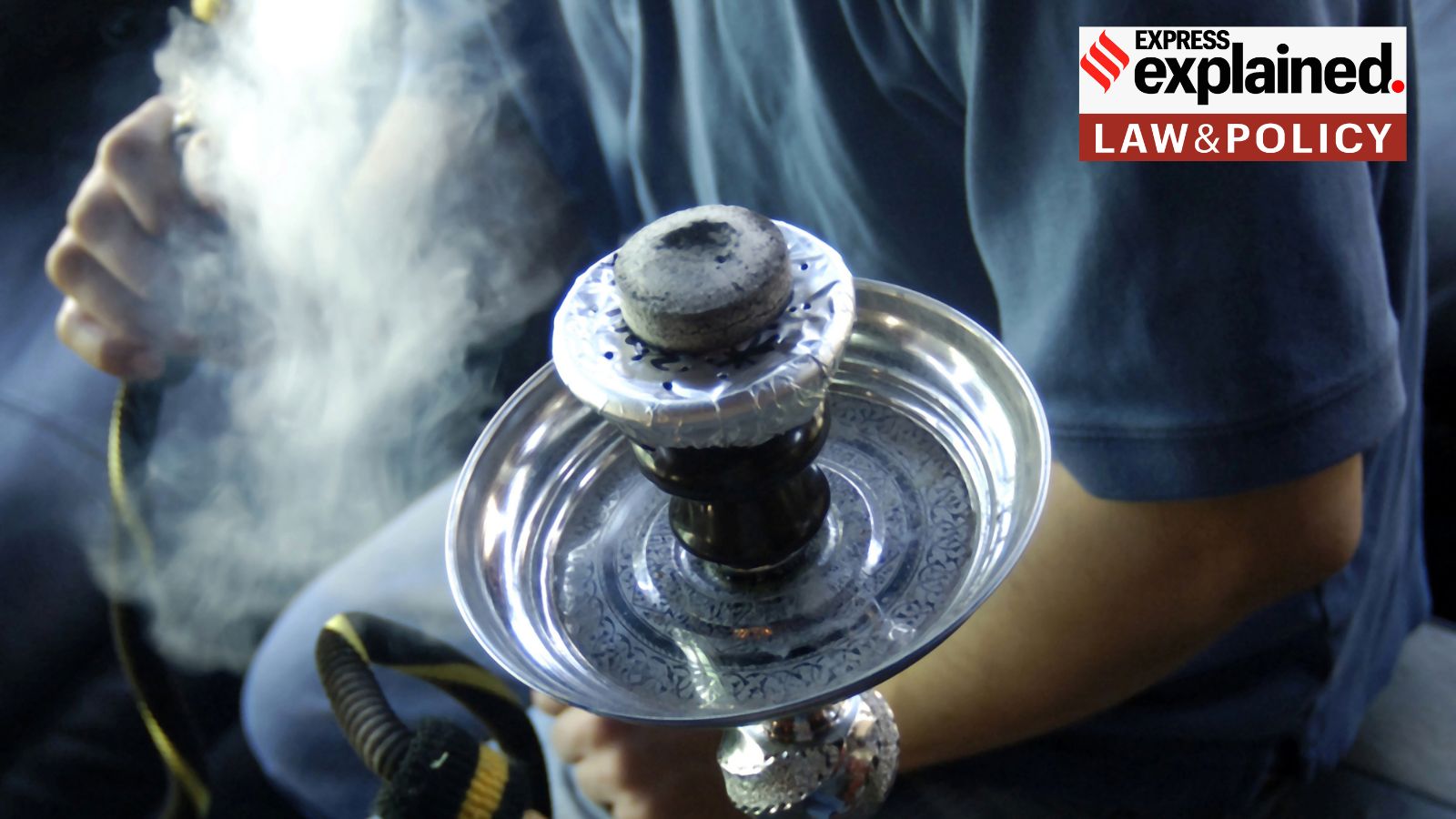How the Karnataka government has justified its hookah ban
The Karnataka government took this measure to ostensibly protect public health. But restaurant and bar owners claim that the ban is illegal.
 Studies have shown hookahs to be as harmful to heath as cigarettes. (Express Archives)
Studies have shown hookahs to be as harmful to heath as cigarettes. (Express Archives)The Karnataka health department issued a notification February 7, banning the sale and consumption of hookahs in order to protect ‘public health’.
The notification states that hookah bars violate fire safety laws and makes food items “unsafe for public consumption”. It also states that violators will be booked under the Cigarettes and Other Tobacco Products (Prohibition of Advertisement and Regulation of Trade and Commerce, Production, Supply and Distribution) Act, 2003 (COTPA), and various other state and central laws.
Shortly afterwards, on February 20, the Karnataka government introduced a bill which proposed to prohibit the opening of hookah bars “in any place”, along with other restrictions. The bill was passed the next day and amended the COTPA Act to punish anyone who opens a hookah bar in the state with 1 to 3 years imprisonment, and a fine of up to 1 lakh rupees.
In the days after the notification was issued, several restaurant owners approached the Karnataka High Court to challenge this notification. The case was heard by a single-judge bench comprising Justice M Nagaprasanna beginning on February 13. The judgement was reserved on March 11.
Why are restaurant owners objecting to the Karnataka notification?
R Bharath, the lead petitioner in the case, argued that the notification amounts to “illegal interference” as the only prohibitions in the COTPA are on public smoking, advertisement of tobacco products, and sale to underage persons. Hookah smoking, the petition points out, isn’t banned by the COTPA so long as it takes place in the designated smoking area, as described in Section 4 of the COTPA.
The petition also claims that the Karnataka health department did not have the legal authority under the COTPA to issue the notification, whereas Bharath had secured the necessary trade licences and certificates to run his business legally. As a result, he claims that the notification violates the rights of business owners under Article 19(1)(g) of the Constitution which gives citizens the right “to practise any profession, or to carry on any occupation, trade or business.”
Separate petitioners also claimed that the ban violates the right to equality under Article 14 of the Constitution by specifically targeting hookah activities while ignoring other tobacco and nicotine based products like cigarettes which are also regulated under the COTPA.
On these grounds, the petitioners have asked the Karnataka HC to quash the notification and direct the state government not to interfere in the business of the petitioners.
How did the Karnataka government justify the hookah ban?
The state government claimed that they have the authority to issue this notification as it falls under the heading of “Public health and sanitation; hospitals and dispensaries” under Entry 6 of the State List, contained in the 7th Schedule of the Constitution. Laws can be enacted by state legislatures on subjects included in the State List.
Moreover, the government referred to Article 162 of the Constitution which gives state government “executive power” in matters where the legislature can make laws, thereby giving it the power to issue the notification banning hookah sale and consumption.
The government also relied upon Article 47 of the Constitution, which places a duty on the government to “endeavour to bring about prohibition of the consumption except for medicinal purposes of intoxicating drinks and of drugs which are injurious to health.”
Article 47 is a “directive principle of state policy” under the Constitution. These serve as guiding principles for states and the centre to create laws, but are not in and of themselves enforceable against citizens if they are contravened.
On the specific subject of hookah bars, the state government claimed that there were no designated smoking areas in these establishments, and claimed “entire floors are marked as designated areas for hookah smoking. Designated areas can only be for eating”, LiveLaw reported.
Do other states have similar hookah bans in place?
The Karnataka amendment to the COTPA introduces Section 4A which states: “No person shall either on his own or on behalf of any other person shall open or run any hookah bar, in any place including the eating house or pub or bar or restaurant by whatever name it is called.”
Identical amendments were enacted in Maharashtra and Rajasthan, in 2018 and 2020 respectively. The Tamil Nadu legislature enacted an identical amendment in 2022 as well, which is pending challenge at the Madras High Court.
- 01
- 02
- 03
- 04
- 05






































